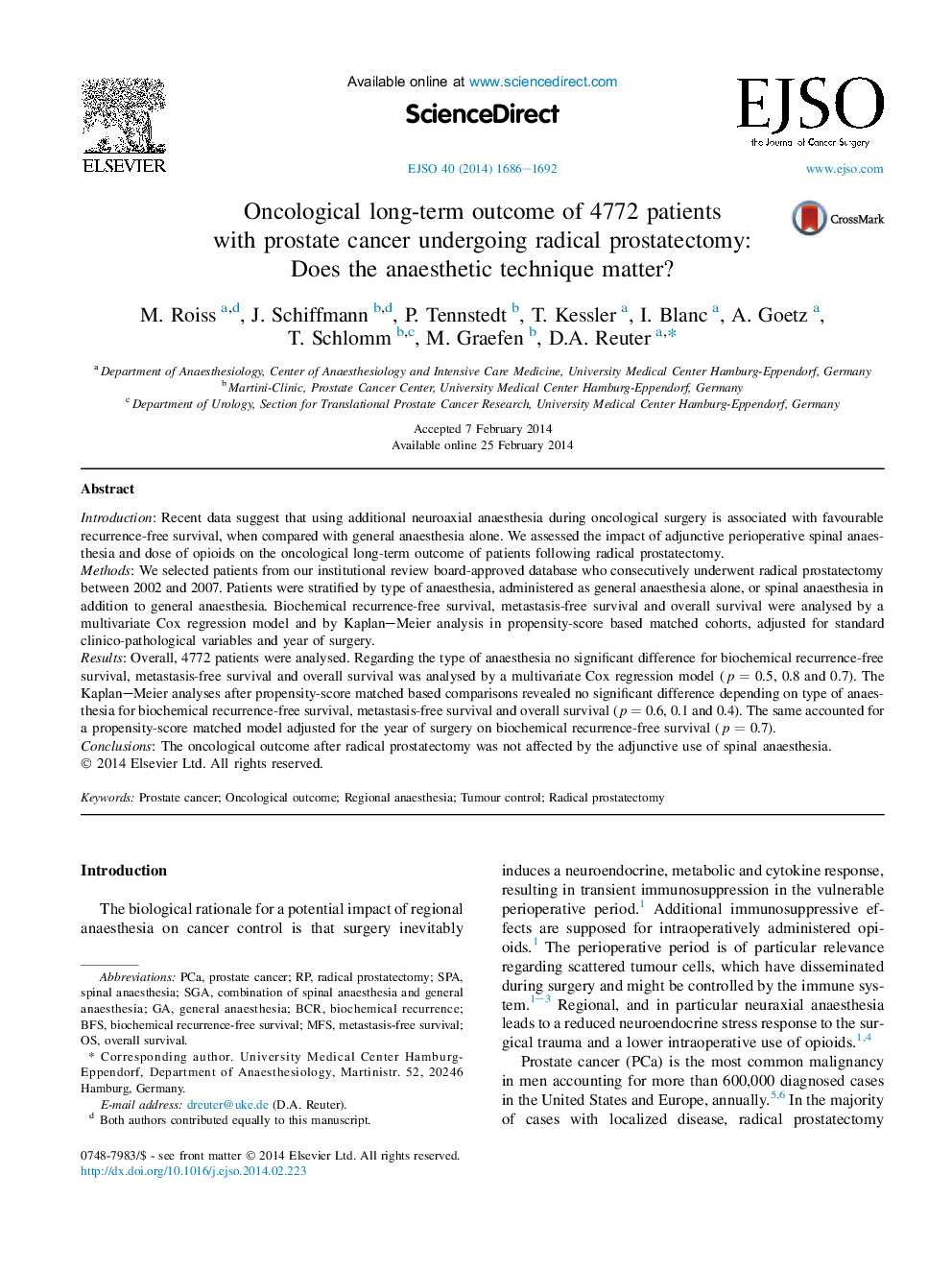| Article ID | Journal | Published Year | Pages | File Type |
|---|---|---|---|---|
| 3984933 | European Journal of Surgical Oncology (EJSO) | 2014 | 7 Pages |
IntroductionRecent data suggest that using additional neuroaxial anaesthesia during oncological surgery is associated with favourable recurrence-free survival, when compared with general anaesthesia alone. We assessed the impact of adjunctive perioperative spinal anaesthesia and dose of opioids on the oncological long-term outcome of patients following radical prostatectomy.MethodsWe selected patients from our institutional review board-approved database who consecutively underwent radical prostatectomy between 2002 and 2007. Patients were stratified by type of anaesthesia, administered as general anaesthesia alone, or spinal anaesthesia in addition to general anaesthesia. Biochemical recurrence-free survival, metastasis-free survival and overall survival were analysed by a multivariate Cox regression model and by Kaplan–Meier analysis in propensity-score based matched cohorts, adjusted for standard clinico-pathological variables and year of surgery.ResultsOverall, 4772 patients were analysed. Regarding the type of anaesthesia no significant difference for biochemical recurrence-free survival, metastasis-free survival and overall survival was analysed by a multivariate Cox regression model (p = 0.5, 0.8 and 0.7). The Kaplan–Meier analyses after propensity-score matched based comparisons revealed no significant difference depending on type of anaesthesia for biochemical recurrence-free survival, metastasis-free survival and overall survival (p = 0.6, 0.1 and 0.4). The same accounted for a propensity-score matched model adjusted for the year of surgery on biochemical recurrence-free survival (p = 0.7).ConclusionsThe oncological outcome after radical prostatectomy was not affected by the adjunctive use of spinal anaesthesia.
